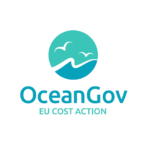Active Working Groups
Contents
Uncertainty at the Tuna RFMOs
Co-Leads: Mark Axelrod (Michigan State) and D.G. Webster (Dartmouth)
Products: A workshop and a joint paper
Description: This project began before the taskforce was created. In fact, it was one of several projects that catalyzed our decision to foster community around the issues of oceans governance. The co-leads secured funding from the International Studies Association for a workshop on Uncertainty in International Regimes in the winter of 2017. Prof. Axelrod also received some support from Michigan State University to undertake data collection from the reports of the 5 regional fisheries management organizations dealing with tunas and other highly migratory species. The main research question for this working group is, “under what conditions does scientific uncertainty lead policy-makers to reject or adhere to scientific advice?” Preliminary results reveal an interesting interaction between uncertainty and price: for low-priced stocks, increasing uncertainty surprisingly correlates with more adherence to scientific advice, but total uncertainty is correlated with less adherence; in contrast, for higher-priced stocks, the reverse is true. We’ve also looked at change in scientific uncertainty and can show that, on average, reported uncertainty has decreased over time. This is not correlated with the likelihood of scientists making any recommendation to act, but does affect the type of management recommendation.
Participants: Oran Young, Peter Haas, Ron Mitchell, Leandra Gonçalves, Sikina Jinnah, David Kerstetter, James Bence, Michael Jones, Nataliya Stranadko
Co-Clusters: Science, Risk, and Uncertainty, Fisheries, Conflict & Diplomacy
Closed to new participants.
Biodiversity beyond national jurisdiction
Co-Leads: Leandra Gonçalves, Rak Kim and Oran Young
Products: a Cluster of papers in Global Environmental Politics journal
Description: This project began before the taskforce was created. In fact, the project has started at International Studies Annual Conference (Baltimore, 2016) after a panel where basically every researcher was discussing the high-seas governance. Oran Young from the United States and Leandra Goncalves from Brazil have taken the initiative in developing this idea.The emergence of this topic is due to the fact that a major development in ocean governance involves the effort to devise a legally binding Implementing Agreement to the UN Convention on the Law of the Sea on Biodiversity Beyond National Jurisdiction (BBNJ). This ambitious initiative encompasses a linked set of provisions on marine genetic resources, area based management tools, environmental impact assessment, and technology transfer/capacity development. The UN General Assembly has formed a PrepCom to make a recommendation regarding whether to proceed with the launching of an International Negotiating Committee on this initiative. A fair amount has been written about this subject. But so far, most of the literature comes from the advocacy community and from a legal perspective. What is needed is a balanced or critical assessment of the issues involved from members of the ESG community who think about international institutions/governance systems and who ask questions about processes of regime formation, the design of effective regimes, interaction with other regimes, and so forth. The journal Global Environmental Politics has expressed interest in publishing a cluster of 2-4 articles on this topic.
As part of this development we already approved a panel on the topic for the 2018 Convention of the International Studies Association in San Francisco.
Participants: Oran Young (University of California, Santa Barbara), Leandra Goncalves (Environmental Studies and Research Center (NEPAM) University of Campinas (UNICAMP) Brazil), Elizabeth M. De Santo (Franklin & Marshall College), Elizabeth Mendenhall (Johns Hopkins University); Áslaug Ásgeirsdóttir (Bates College); Elizabeth Nyman (Texas A&M University Galveston); Rachel Tiller (SINTEF); Rakhyun Kim (Utrecht University); James Hollway (Graduate Institute, Geneva); DG Webster (Dartmouth College); Pedro Fidelman (University of the Sunshine Coast).
Co-Clusters: Uncertainty, Fisheries and Ocean Law
Closed to new participants.



Recent Comments